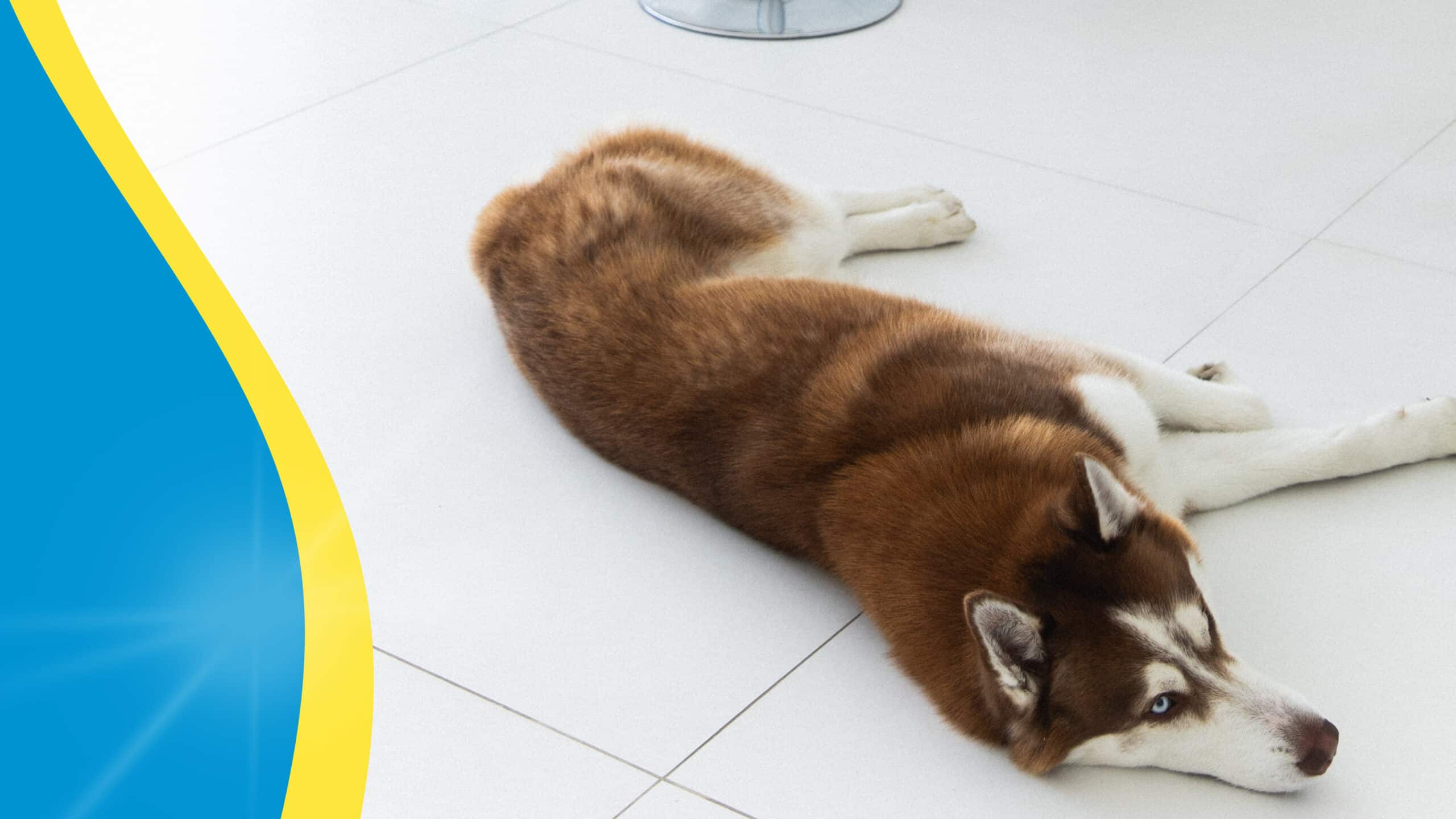
Giving our house or apartment a good cleaning not only makes us feel better, acting as a mood booster and de-stresser, but also a clean abode is physically healthier for us. When we disinfect our living spaces, we eliminate dirt and germs that can make us sick, protect ourselves and loved ones against viruses and bacteria, and rid our homes of mold, dust mites and pet dander that can trigger allergies or asthma attacks.
Yet for our beloved furry friends, the powerful cleaning agents we might enlist to make our abodes all sparkly shiny might not be the safest substances if ingested by dogs, cats or birds.
Thankfully, there are ways to ensure cleaning safety while our pets are around with just a few safeguards in mind. Keep reading to learn more.
Some Ingredients Are Toxic to Pets
Many household cleaners contain ingredients that can be harmful to pets. Dogs and cats have strong senses of smell, and they may find the smell of many scented cleaning products pleasant and want to ingest them. Even if not directly ingested, dogs and cats could inadvertently inhale airborne particles from aerosol cleaners, or lick their paws after walking on a floor that’s just been cleaned. Here are some ingredients to avoid:
- Alkyl dimethyl benzyl ammonium chloride (BACS): A common disinfectant and active ingredient in disinfecting wipes and sprays
- Phenol: An organic chemical compound used in disinfecting wipes, sprays and floor cleaners
- Ammonia: An industrial chemical found in many household cleaning products
- Isopropyl Alcohol: AKA rubbing alcohol, the active ingredient in hand sanitizer
- Bleach
- Non-Chlorine or “Color-Safe” Bleach: Less toxic than regular bleach, but can cause vomiting due to hydrogen peroxide
- Essential Oils: Toxic when ingested or inhaled
According to the Humane Society of the United States, cats are particularly vulnerable to these chemicals because their small bodies — which lack certain liver enzymes — don’t handle toxins well, which can be ingested by licking their paws. Due to their curious nature, they may also get into places you’ve cleaned that you wouldn’t expect.
According to the Humane Society, while dogs’ bodies metabolize some chemicals differently and they don’t clean their coats like cats, they also lick their paws and may lap up or drink liquid cleaning products in buckets if you’re not mindful.
What Are the Side Effects?
Pets who ingest, touch or inhale hazardous cleaning products can experience some serious reactions, according to Hill’s Science, including:
- Upset stomachs
- Diarrhea
- Vomiting
- Seizures
- Respiratory infections
- Chemical burns
- Liver and/or kidney failure
- Skin irritations like itching, scratching, redness and sores
According to the American Society for the Prevention of Cruelty to Animals (ASPCA), calls to its Animal Poison Control Center regarding cleaning supplies have recently increased by 65 percent.
Don’t Forget About Birds
Parrots or other exotic birds can also be vulnerable to certain chemicals found in common cleaners:
- Polytetrafluoroethylene (PTFE)
- Chlorine
- Ammonia found in window cleaners
- Phenolics (aka phenols)
Also avoid using any spray products containing aerosols; because birds have very delicate, sensitive respiratory systems, these can be toxic — and even fatal — if inhaled. Scented carpet cleaners and laundry detergents can also have ill effects for birds — if your bird flies freely and walks on your carpet, or if you use detergents on towels to line its cage.
Safely Use Cleaning Supplies Around Your Pets
While it’s safe to altogether avoid certain chemicals in cleaning supplies, follow some of these cleaning tips and guidelines to safely use household cleaners around pets:
- Read all labels carefully and follow instructions as described.
- Avoid mixing chemicals and products not meant to be mixed.
- Keep pets away while cleaning. Use a doggie gate or keep your dog or cat in another room with the door closed when using cleaning products.
- Let products fully dry before allowing pets back into the area — and avoid tracking wet floor cleaners from room to room on your shoes or clothing. Keep windows open to air out strong smells first.
- If aerosols are a must, follow the above two tips for birds: keep them away from the area you’re spraying, and let products dissipate before letting them back in.
- Dispose of cleaning products safely. When finished cleaning with liquids, rinse out all buckets and mops. Discard all disinfectant wipes immediately, and ensure all garbage bags and cans are secured tightly.
- Keep products in their original containers and store them properly — high shelves or in the garage, where pets have no access, is recommended. (And consider locking cupboards or cabinets that dogs or cats might easily get into.)
And remember to never, ever leave cleaning products and supplies unattended around your furry friends.
Clean Safely, The Simple Scrub Way
We make sure cleaning is not only easy, but also safe for pets in every room of the house. Our pet safe cleaning products and other supplies make cleaning a cinch while keeping your and your pets’ health top of mind.
If you have any further questions about our products, feel free to contact us today.
